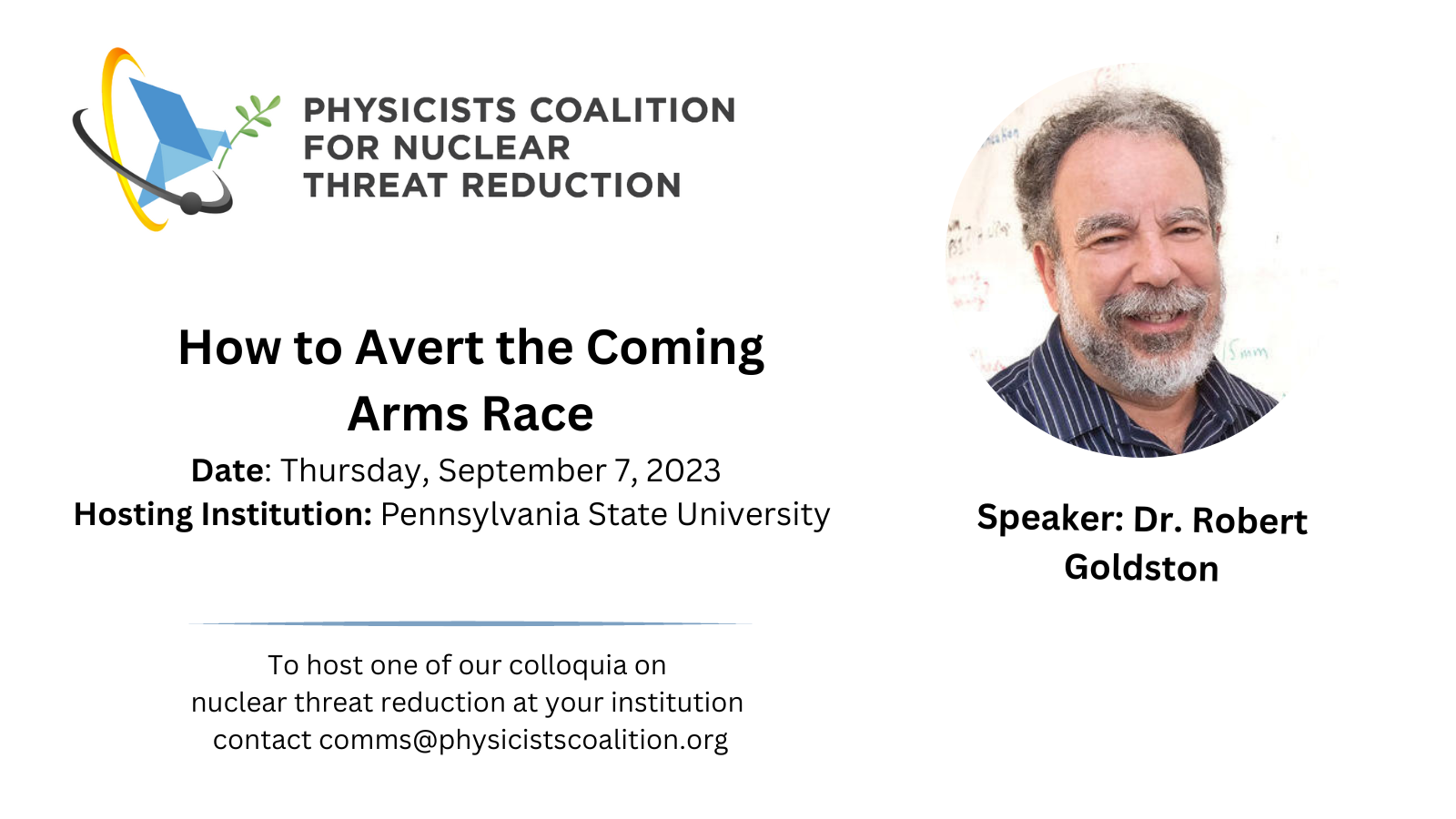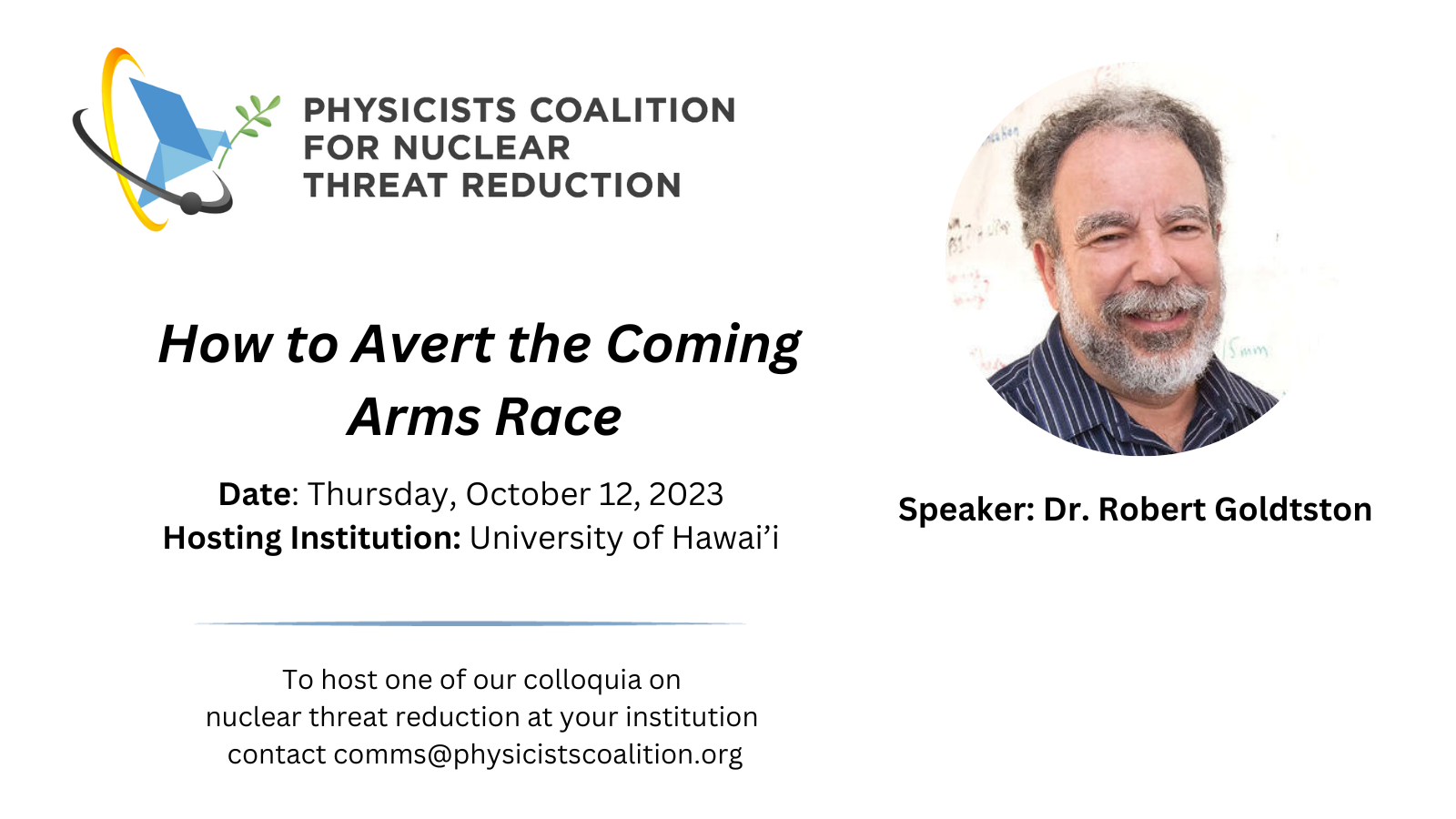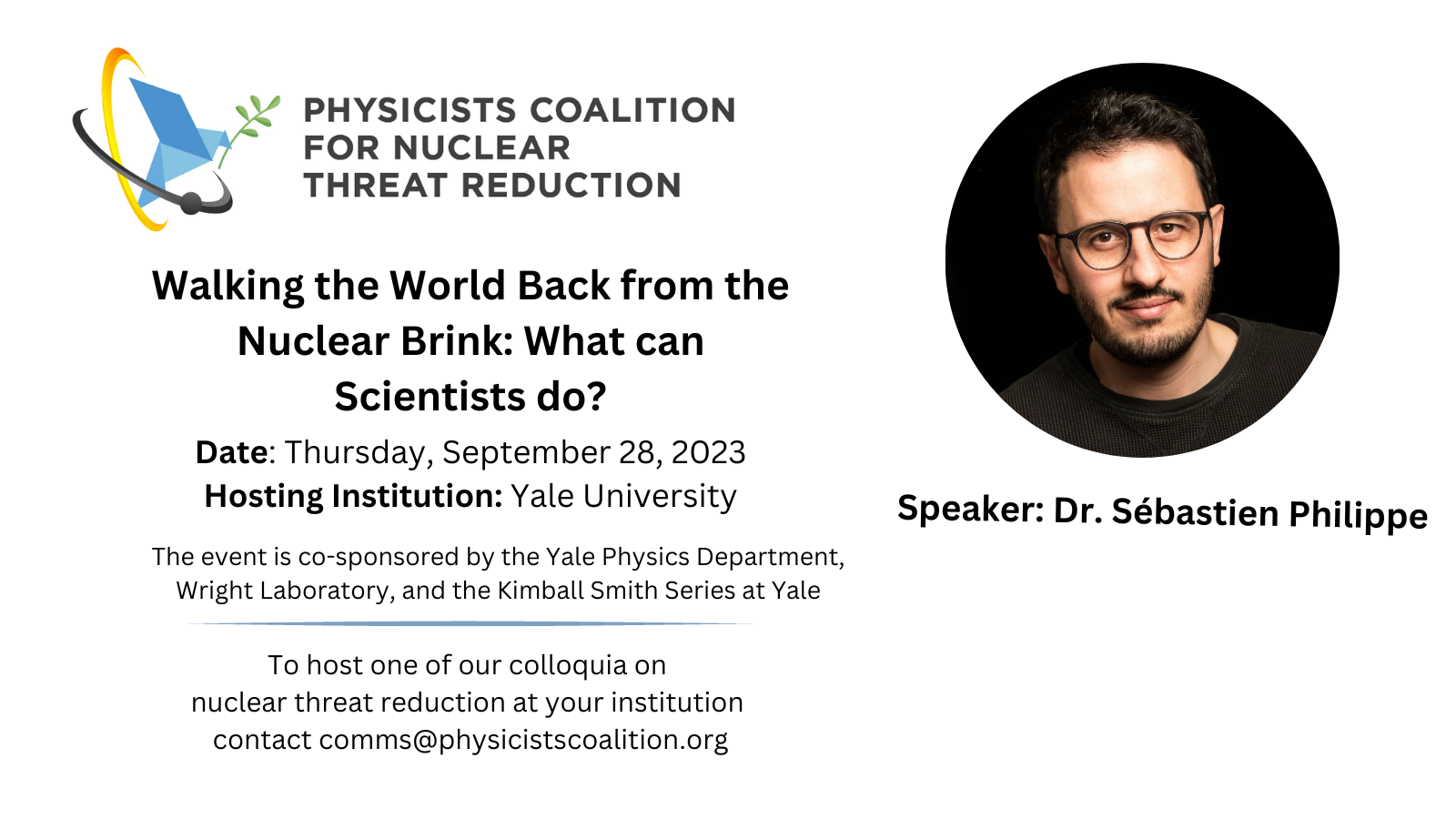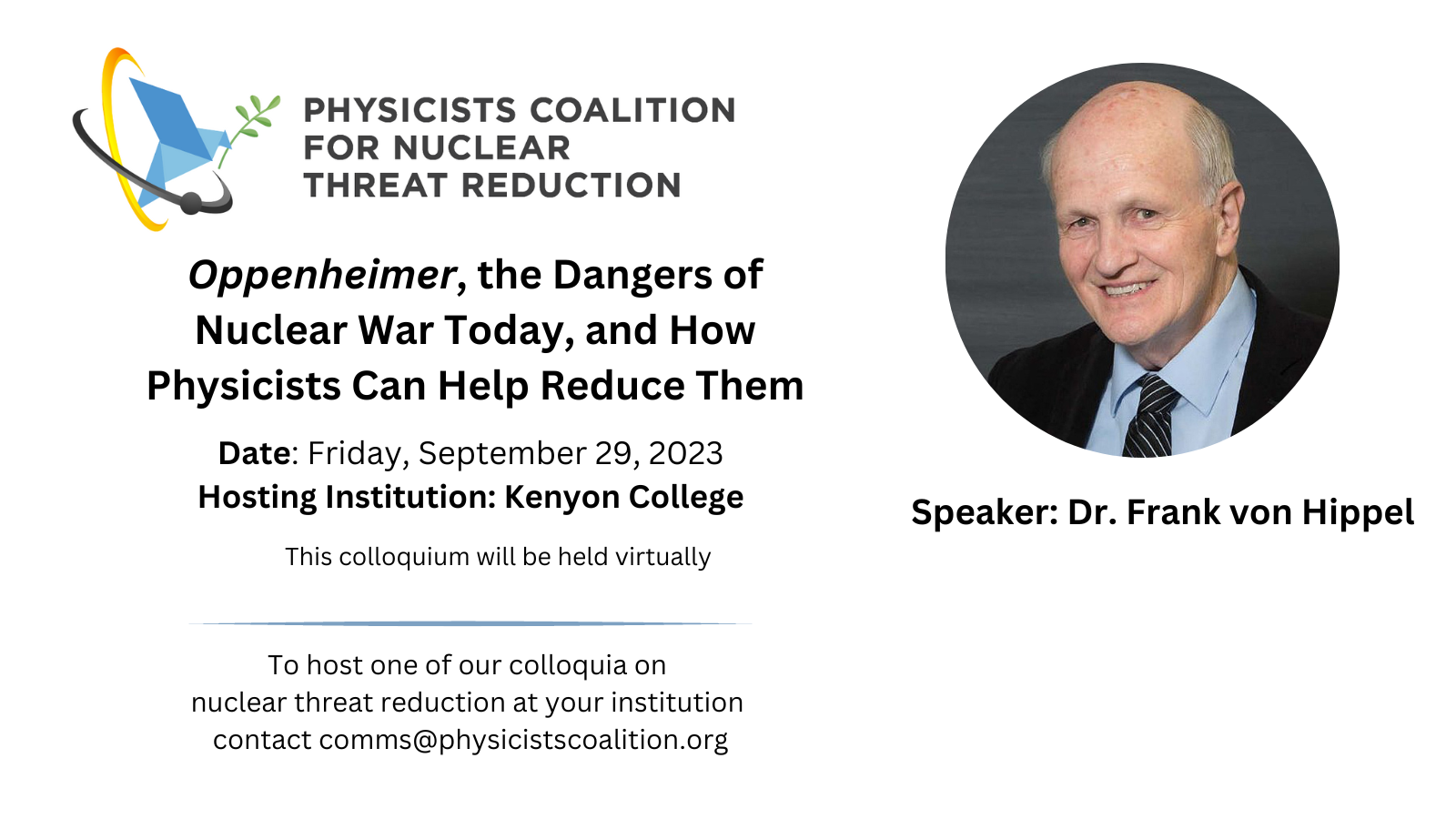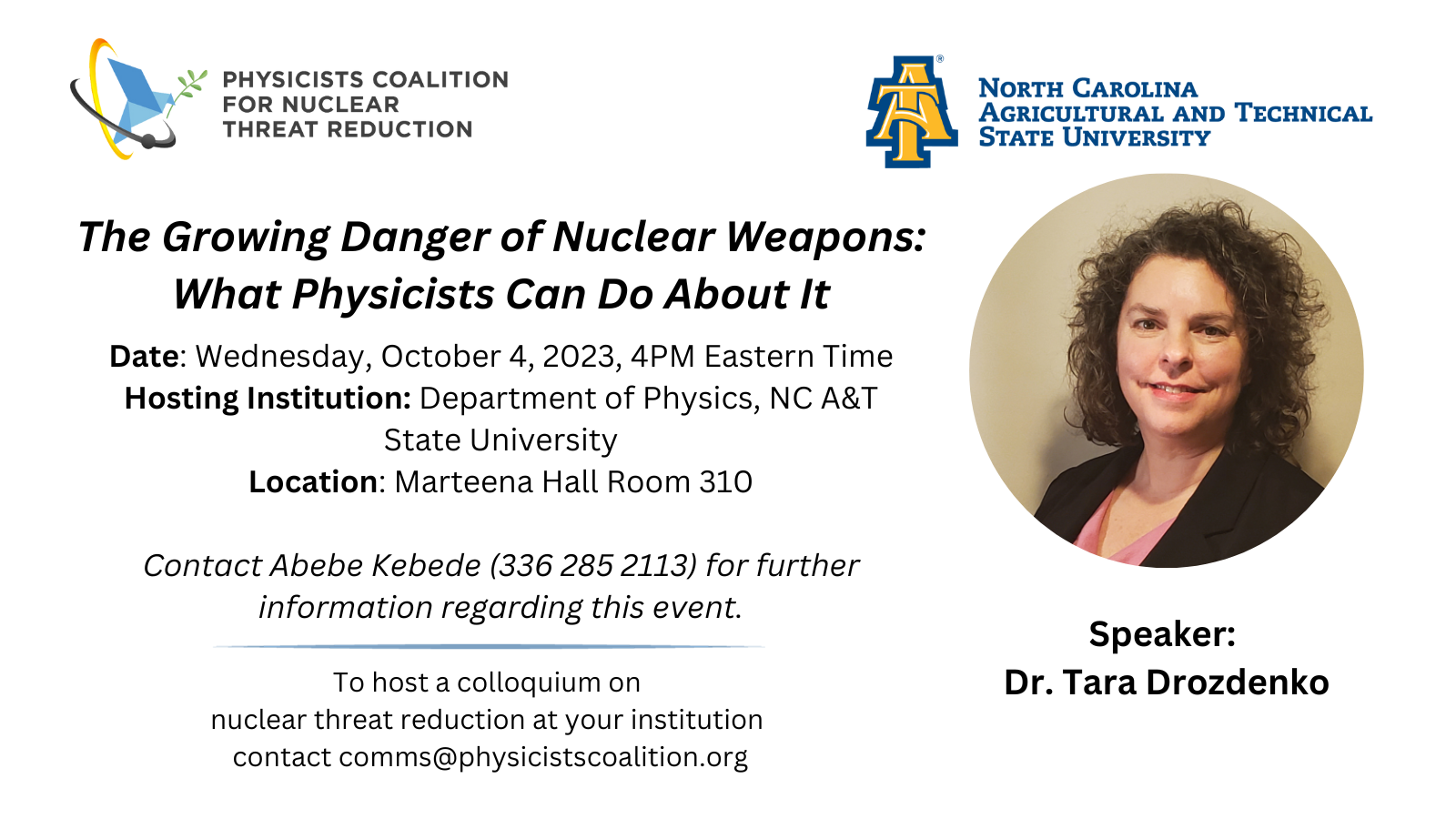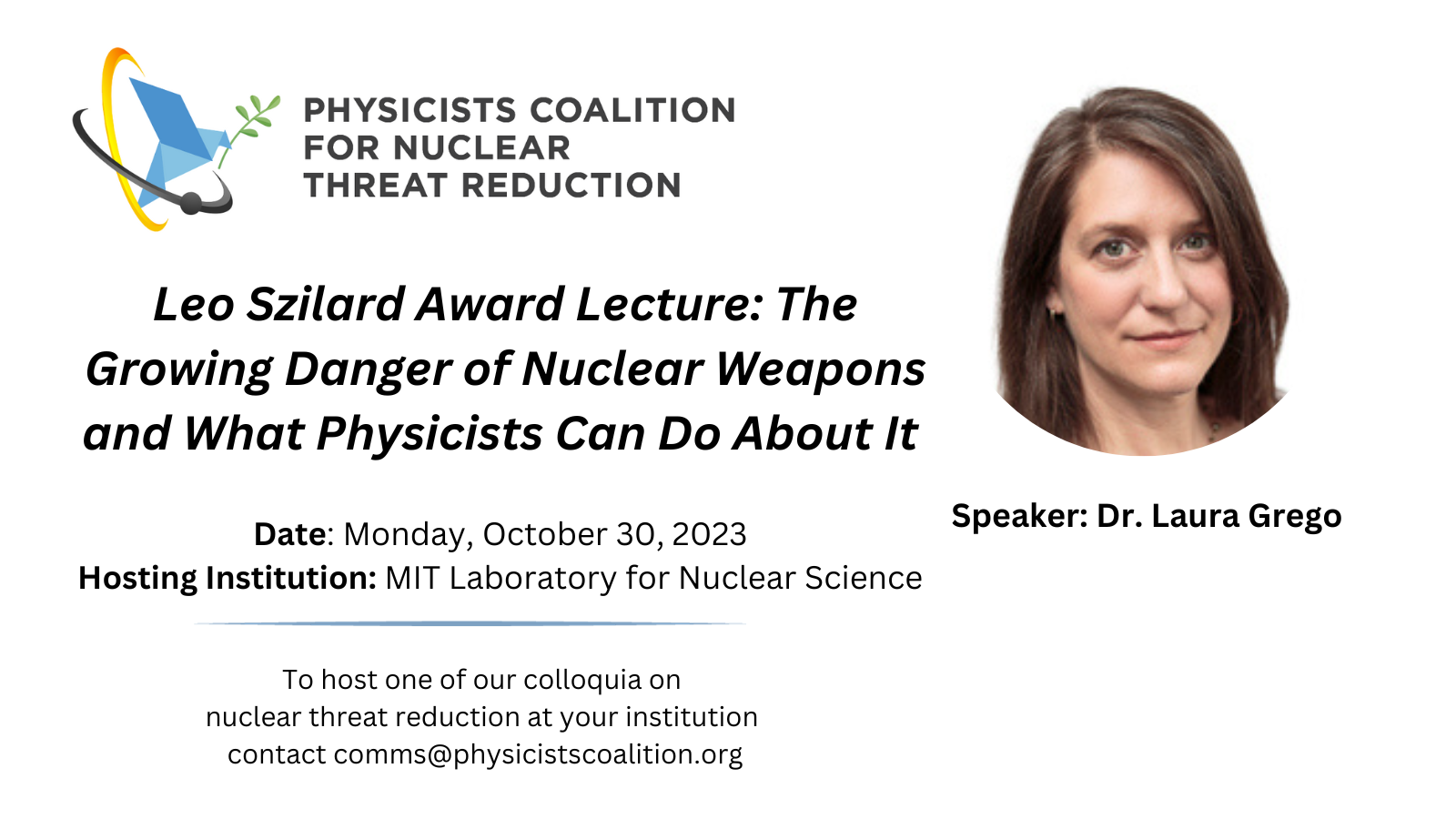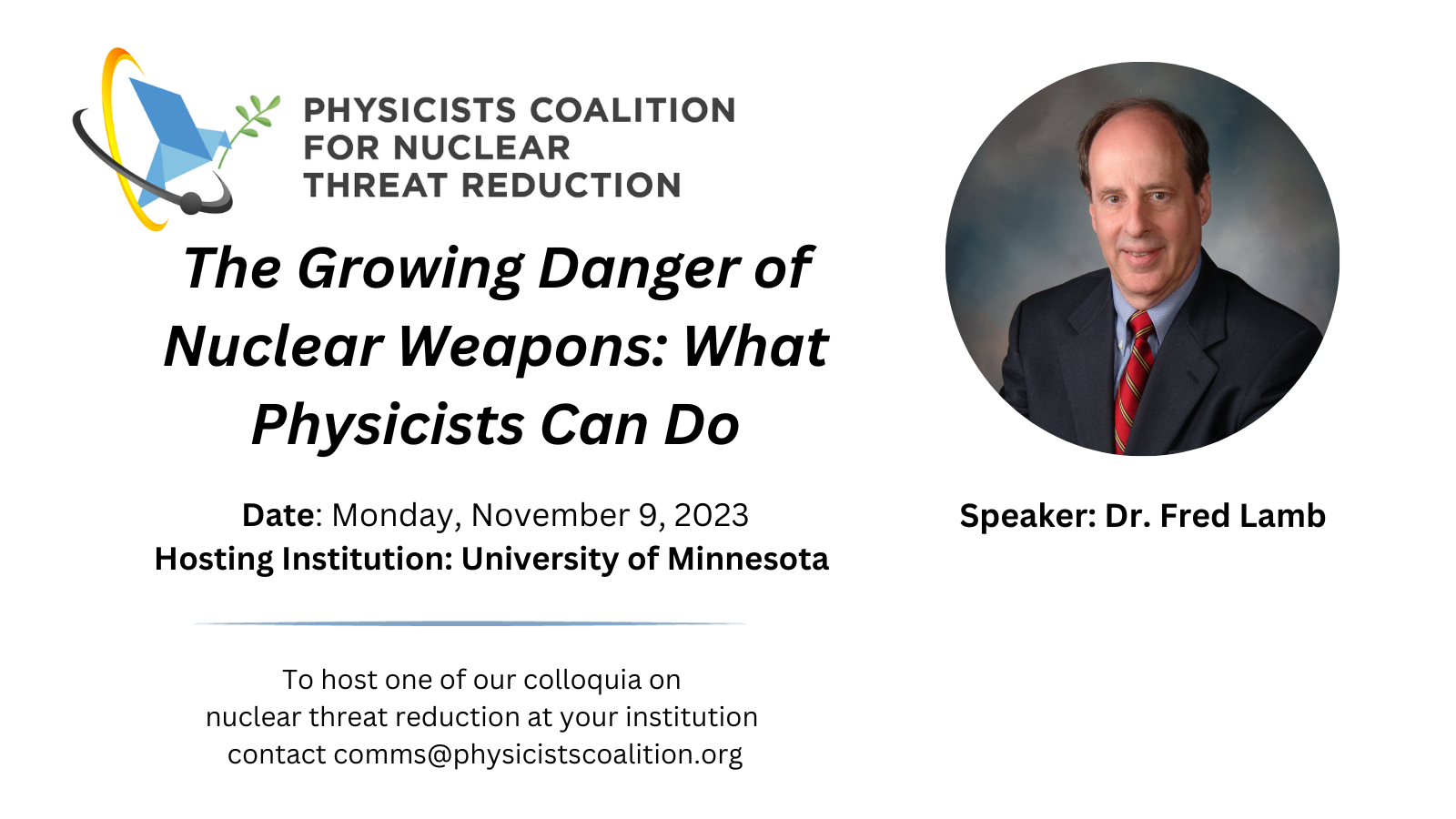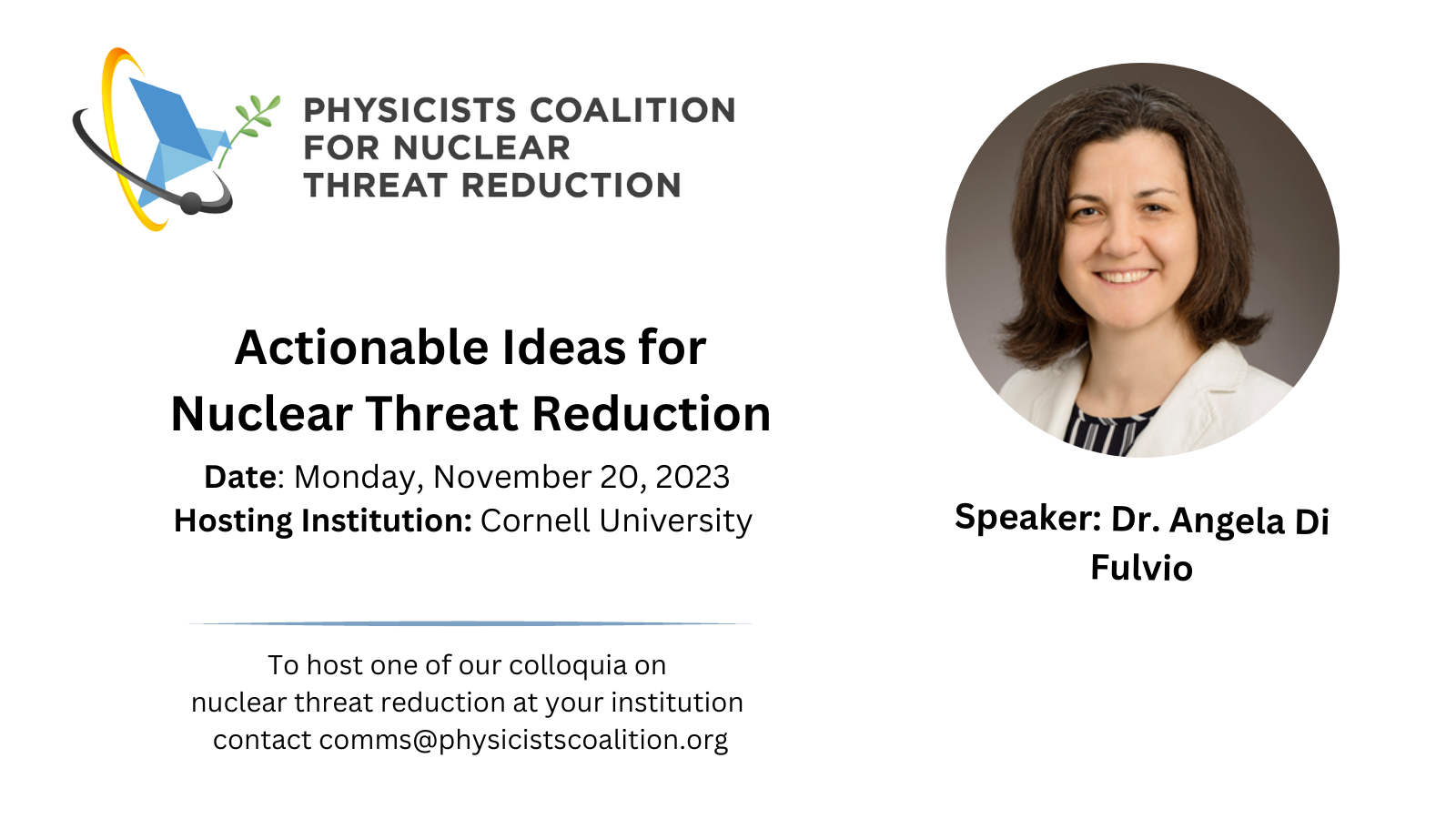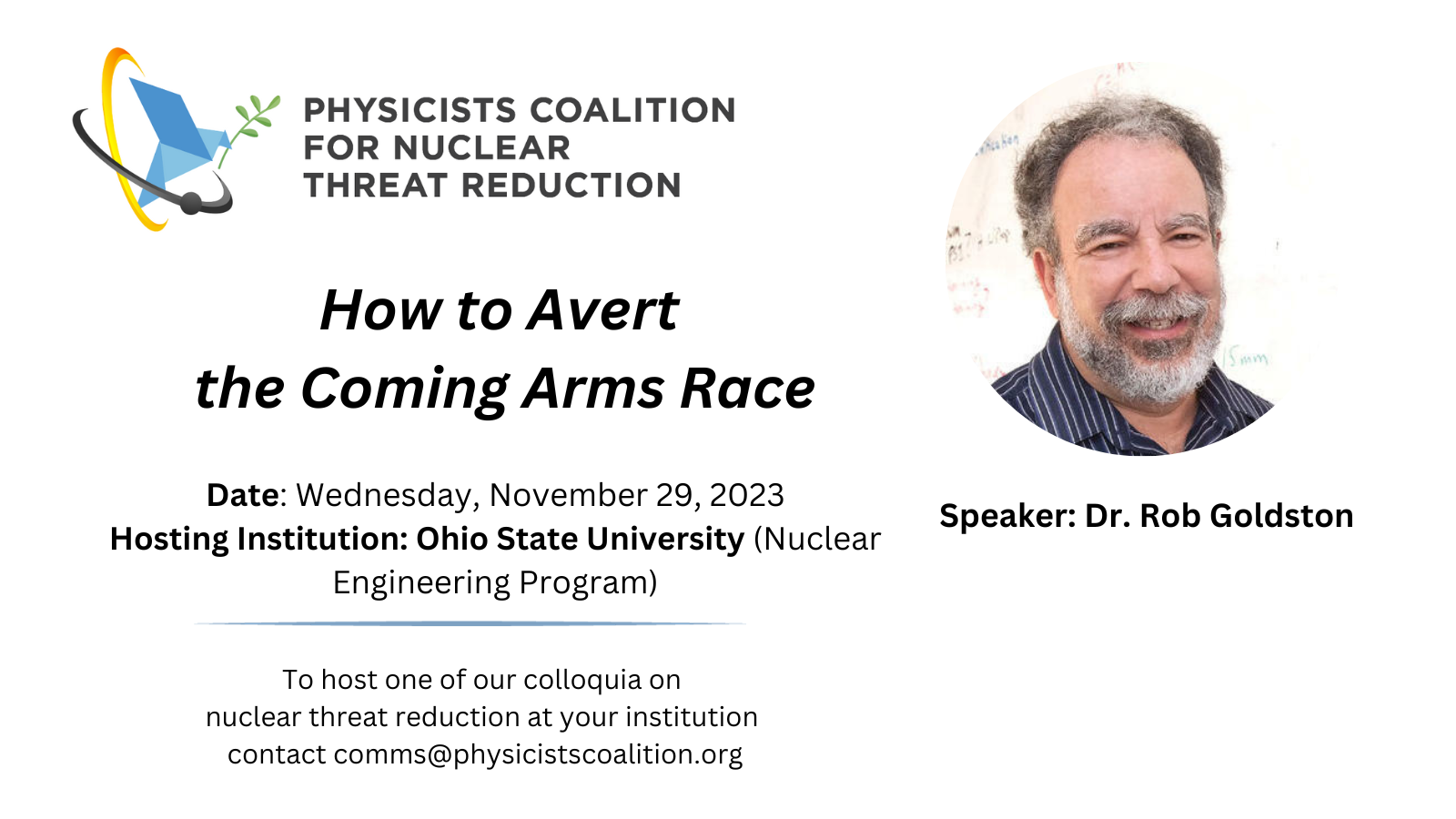Oppenheimer: Scientists, The Bomb, and the Implications for Today
The film Oppenheimer, which opened in theaters in July, tells the story of American physicist J. Robert Oppenheimer who led the team that built the first atomic bomb, and later worked to curb the nuclear arms race. The scientific community has played a critical role in highlighting the dangers of nuclear weapons and their […]

